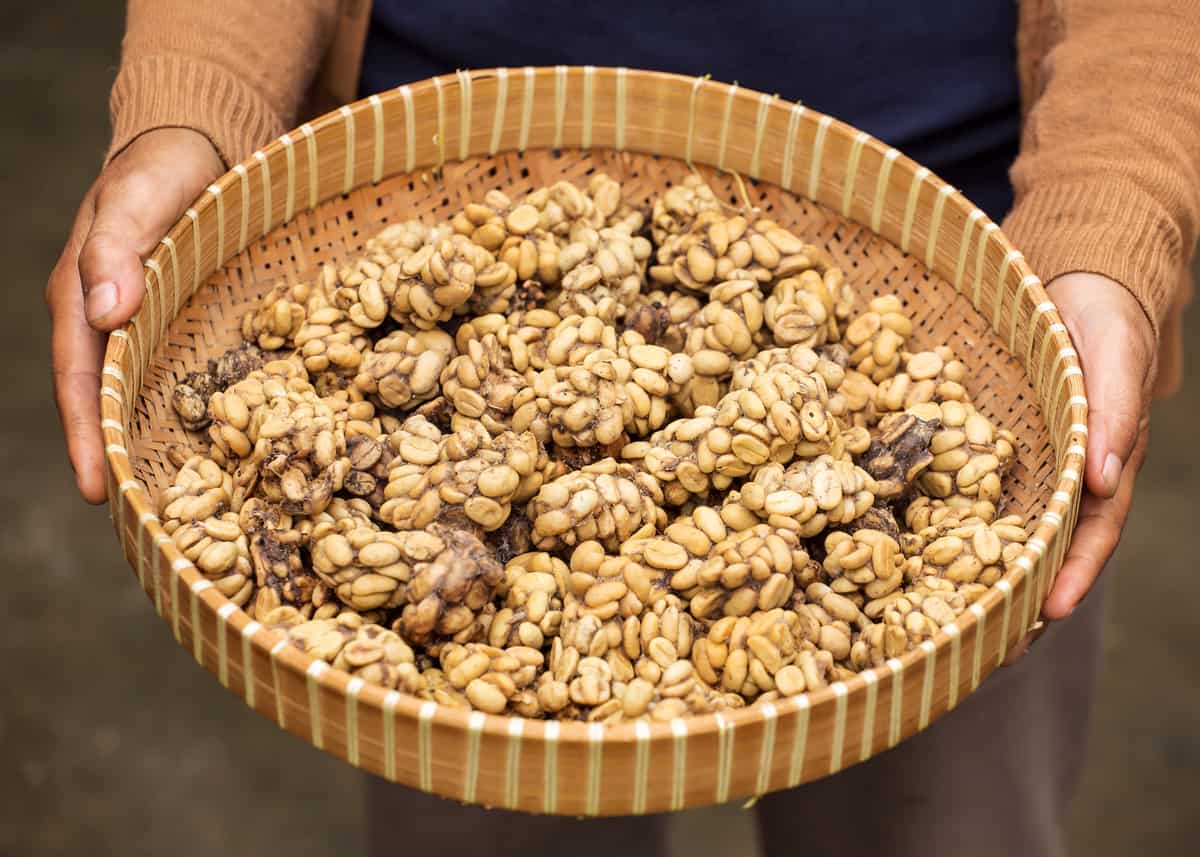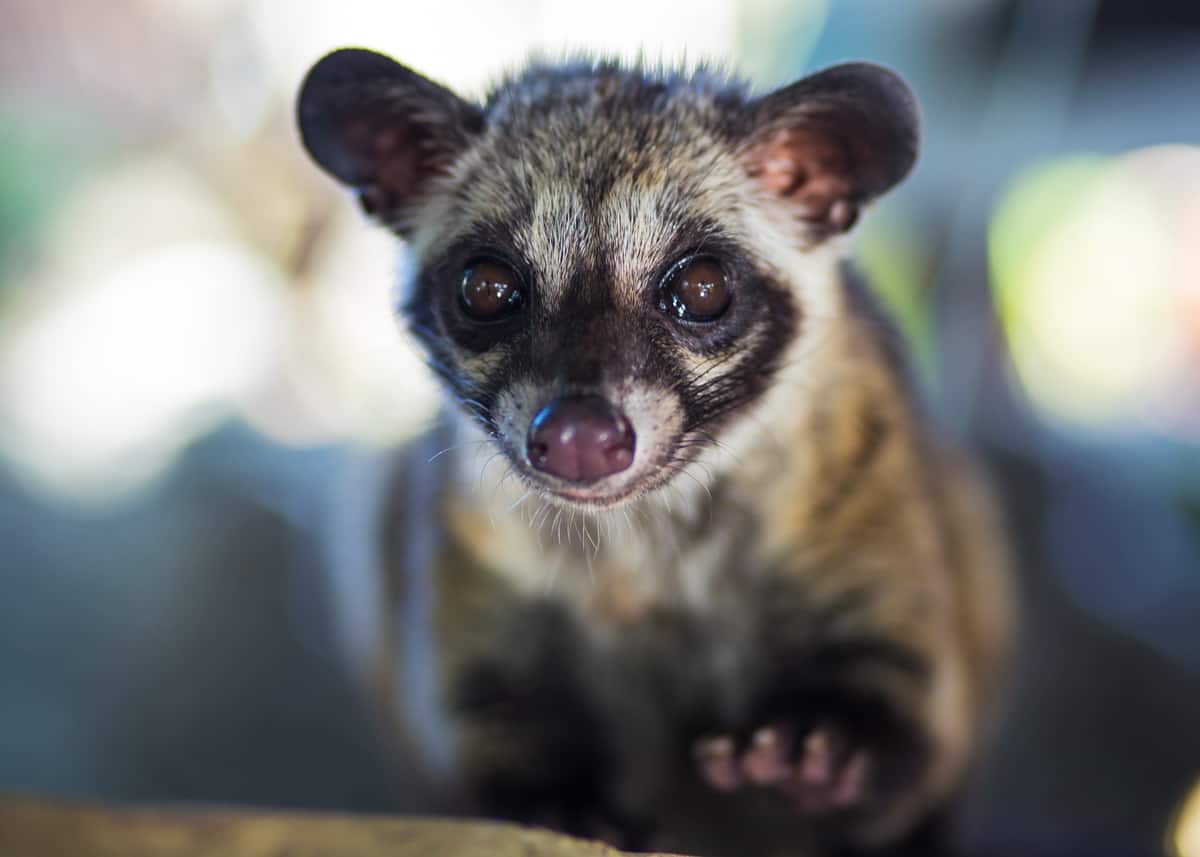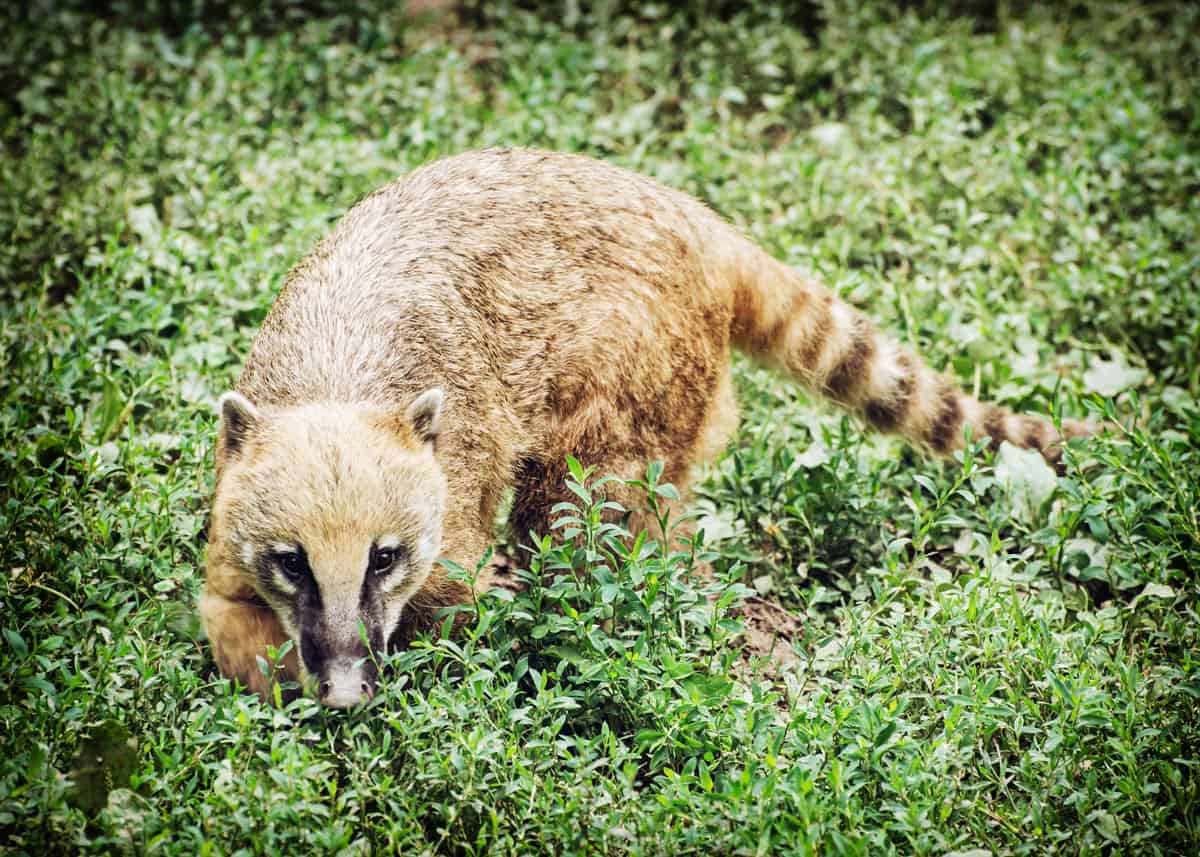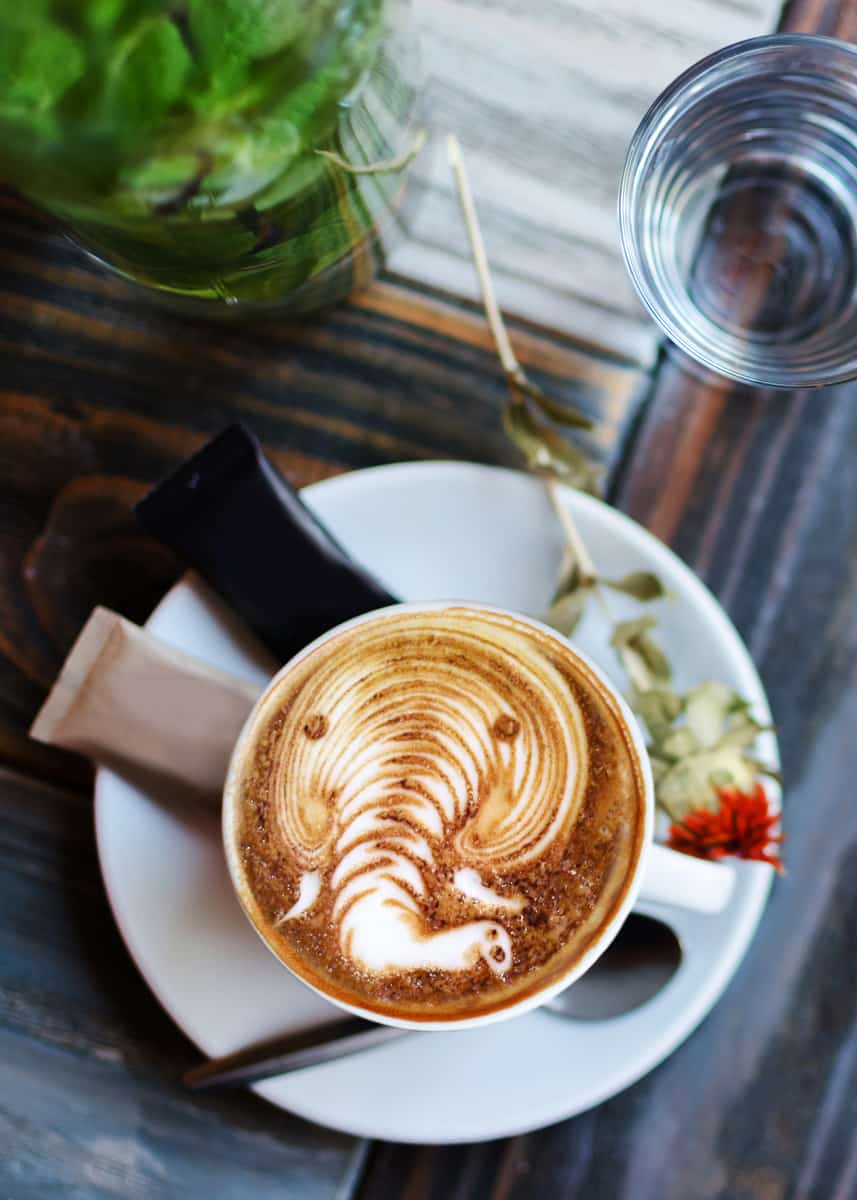Have you ever heard of cat poop coffee? What about Jacu bird coffee or Black Ivory Coffee? In this post, I’ll cover these strange specialty coffees made with beans first-eaten then-pooped before being brewed.

4 Types of Animal Poop Coffee: Cat, Raccoon, Bird, Elephant
Drinking coffee from beans that an animal ate and pooped out, which were then roasted and brewed? Does that sound disgusting, or tempting? Either way, this type of coffee is very real. And people pay up to $80 per cup for a taste.
As a side note, you may also hear people talking about bat poop and monkey poop coffee, but those animals don’t actually eat the coffee cherries. So they do not poop them out, they are not “poop coffee”.
The bats just nibble part of the coffee cherries off the bush, so the coffee is bat-nibbled coffee. And the monkeys pluck the cherries, eat off all the fruit and spit out the pits (which are “coffee beans”) so it could be called monkey spit coffee.
Here are the four most popular types of animal poop coffee.
1. Kopi Luwak Coffee (Civet Coffee)
Kopi Luwak coffee, (Civet coffee in North America) is more informally called cat poop coffee. Sounds gross, doesn’t it? Well, here’s a forewarning for you: the process of making this coffee may sound even worse to you, but some people swear by its incredible flavor.
This coffee is named after the Asian palm civet, a furry, nocturnal animal that’s native to Southeast Asia and Sub-Saharan Africa.
It’s about the size of a cat but is more closely related to a weasel or mongoose. The civet loves to eat fruit such as mangoes, rambutan, and yes, coffee cherries.
- After the civet eats the coffee cherries, they undergo some fermentation in the animal’s digestive tract and are then pooped out whole within about 24 hours.
- These civet droppings are then collected and the coffee beans are extracted, washed, and roasted to then be brewed into one of the world’s most expensive types of coffee.
A cup of civet coffee can cost you between $35 and $80 in the United States. If you want to purchase a bag of it, it could cost you up to $500. You might be asking, why the high price? The answer is that civet coffee is in limited supply.

The most superior civet coffee derives from wild civets, but it can be difficult to follow these animals around to collect their droppings. So, to keep up with the demand civet-raising farms have developed. However, there are concerns about how well these animals are treated on the farms.
You also might be wondering, why would anyone want to drink animal poop coffee? Those who love it say it tastes better than any other type of coffee. It could also be because many people like to try strange and daring things while others enjoy the expensive bragging rights that come along with it.
But, if you think civet poop coffee is bizarre, it’s not the only animal poop coffee in the world. It appears to be a trend that is catching on.
Check out the following coffees made from the poop of the Coatis, Jacu bird, and the Asian elephant.
2. Coatis Coffee
Coatis coffee is very similar (in the process and harvesting) to civet coffee, except the cute little animal that poops it out is from the same family as the raccoon.
They are also known as mishasho and uchunaris so you may hear this type of poop coffee called either mishasho coffee or uchunari coffee.
Also, because the coffee from these little guys droppings is made in Peru you may hear it called Peruvian poop coffee. Learn more about coffee from Peru.

As with the other kinds of poop coffee, Coatis coffee is said to be less bitter because of the digestive process it undergoes. Fans also say that it takes on a unique flavor because of the other things being digested along with it.
3. Jacu Bird Coffee
The Jacu bird is a native bird to Brazil, and like the civet, it feeds on ripe coffee cherries.
On a small coffee plantation in Pedra Azul, Espirito Santo, workers collect the bird’s droppings and transport them to areas where they are then cleaned, dried, and stored before processing.
Fans of this unique coffee say that its end result is a full-bodied, sweet coffee that has a hint of cinnamon and a smooth, clean aftertaste.
Learn more about Brazilian coffee.

4. Black Ivory Coffee
Black Ivory Coffee is a brand of coffee that is produced at the Golden Triangle Asian Elephant Foundation refuge in Chiang Saen, Thailand. Can you guess how it’s made?
Yes, elephant poop is the correct answer. The refuge cares for about 20 rescued elephants and part of their diet is Arabica coffee beans. The beans take between 15 and 70 hours to digest before they can be collected and processed.
The presence of the other ingredients in the elephants’ stomachs supposedly contributes to the unique, smooth flavor of Black Ivory Coffee.
You’ll probably have to travel to get a cup of this specialty coffee at a luxury hotel, but the good news is that a portion of the sales is used to provide for the upkeep and health care of the elephants that reside at the refuge.

Looking for more coffee options? Check out our guide to every type of coffee.
Animal Poop Coffee and You
Have you sampled any of the coffee on this list? We would love to hear what you thought of it.
Or perhaps the biggest question is, will you try this kind of coffee? Let me know in the comments!
- About the Author
- Latest Posts
Dena Haines is a co-founder and blogger on EnjoyJava – and is working to make it the best coffee blog in the world.
She also blogs about travel at Storyteller.Travel and photography at Storyteller Tech. Dena is a partner at Storyteller Media, a publishing company she started with her husband, Bryan.
